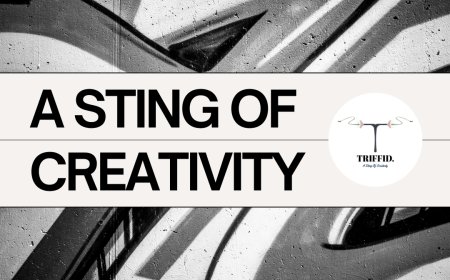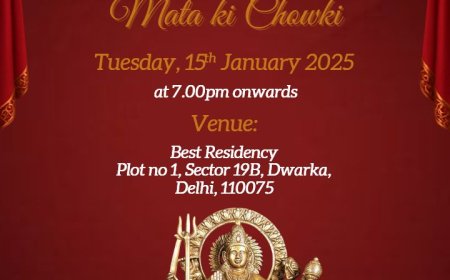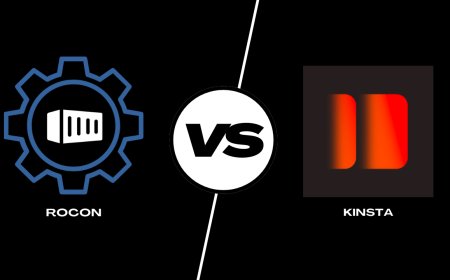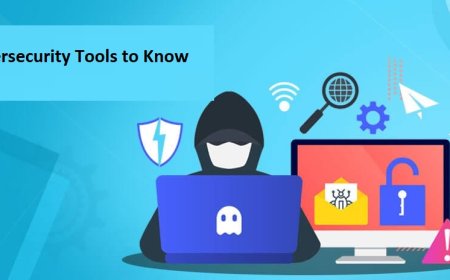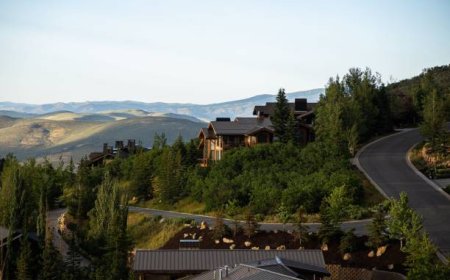How to Attend Banned Books Events in San Jose
How to Attend Banned Books Events in San Jose San Jose, California, is a vibrant cultural hub known for its commitment to free expression, intellectual diversity, and community engagement. In recent years, as book bans have surged across the United States, San Jose has emerged as a stronghold for literary resistance — hosting a growing number of events centered on banned and challenged books. Thes
How to Attend Banned Books Events in San Jose
San Jose, California, is a vibrant cultural hub known for its commitment to free expression, intellectual diversity, and community engagement. In recent years, as book bans have surged across the United States, San Jose has emerged as a stronghold for literary resistance — hosting a growing number of events centered on banned and challenged books. These gatherings are more than just readings or panel discussions; they are acts of civic courage, educational empowerment, and community solidarity. Attending these events is not merely a passive act of consumption; it is an active participation in the defense of the First Amendment and the right to read without censorship.
Whether you’re a lifelong reader, a concerned parent, a student, a teacher, or simply someone who believes in the power of stories, learning how to attend banned books events in San Jose opens the door to meaningful dialogue, cultural enrichment, and tangible advocacy. This guide provides a comprehensive, step-by-step roadmap to help you navigate, engage with, and maximize your experience at these vital events — from finding them to participating meaningfully and sustaining your involvement beyond a single evening.
Step-by-Step Guide
Attending a banned books event in San Jose requires more than showing up at a venue. It demands preparation, awareness, and intentionality. Follow these seven detailed steps to ensure you’re fully equipped to participate in these events with confidence and impact.
Step 1: Understand What Constitutes a Banned Books Event
Not every book-related gathering is a banned books event. A true banned books event centers on literature that has been formally challenged, restricted, or removed from libraries, schools, or public institutions due to perceived controversial content. Common reasons for banning include racial themes, LGBTQ+ representation, sexual content, political viewpoints, or religious objections.
In San Jose, these events often feature readings from banned texts, author Q&As, panel discussions with librarians and educators, student-led poetry slams featuring censored works, and art installations inspired by challenged books. Events may be organized by public libraries, independent bookstores, universities, or grassroots coalitions like the San Jose chapter of the National Coalition Against Censorship (NCAC).
Before committing to attend, review the event description carefully. Look for keywords such as “banned,” “challenged,” “censored,” “free speech,” “intellectual freedom,” or titles of well-known banned books like “To Kill a Mockingbird,” “Gender Queer,” “The Bluest Eye,” or “All Boys Aren’t Blue.”
Step 2: Identify Reliable Sources for Event Listings
Event information is not always centralized, so you must consult multiple trusted sources to stay informed. Here are the most reliable channels in San Jose:
- San José Public Library (SJPL) Events Calendar — sjpl.org/events. The library system hosts regular banned books programming, especially during Banned Books Week (late September). Events are tagged with “Intellectual Freedom” or “Banned Books.”
- Bookshop Santa Cruz and Booksmith (San Jose affiliates) — These independent bookstores often co-host events with local authors and activists. Check their event pages and sign up for newsletters.
- San Jose State University (SJSU) Library and English Department — SJSU frequently hosts academic panels, student readings, and guest lectures on censorship. Visit sjsu.edu/library/events or sjsu.edu/english/events.
- Bay Area Book Festival — Though regional, this annual event includes a strong banned books track. Past speakers have included authors of challenged titles and ACLU representatives.
- Local LGBTQ+ and Racial Justice Organizations — Groups like the San Jose LGBTQ Center, NAACP San Jose, and the Asian American Institute often co-sponsor events highlighting books that challenge dominant narratives.
- Eventbrite and Meetup — Search “banned books San Jose” or “censorship reading.” Filter by date and read attendee reviews to gauge authenticity.
Bookmark these sites and enable notifications. Many events are announced with less than two weeks’ notice, especially those responding to recent censorship attempts in local school districts.
Step 3: Register or RSVP When Required
Some events, particularly those held indoors or with limited capacity, require registration. This is not a barrier — it’s a tool for organizers to ensure accessibility and safety.
When registering:
- Provide accurate contact information so you receive updates about venue changes or cancellations.
- Indicate accessibility needs if applicable (e.g., ASL interpretation, wheelchair access, sensory-friendly seating).
- Consider signing up for volunteer roles — many events rely on community members to help with setup, registration, or outreach.
If an event is free but unregistered, arrive early. Popular events — especially those featuring nationally known authors — often fill seats within minutes of doors opening.
Step 4: Prepare Your Materials and Mindset
Attending a banned books event is not like going to a concert or movie. It’s an immersive educational and emotional experience. Come prepared:
- Bring a notebook — Jot down titles, quotes, or names of authors you want to explore later.
- Bring a reusable water bottle and light snack — Many events run long, and food may not be available.
- Review the book(s) being discussed — If the event centers on “Lawn Boy” by Jonathan Evison or “The Perks of Being a Wallflower” by Stephen Chbosky, read or reread key passages beforehand. This deepens your engagement.
- Prepare thoughtful questions — Avoid “Why was this book banned?” (too broad). Instead, ask: “How did the school board’s decision impact students’ access to diverse identities?” or “What resources are available for teachers facing pressure to remove books?”
- Practice active listening — These events often include personal testimonies from students, parents, or librarians. Your silence and presence are powerful.
Step 5: Attend with Respect and Awareness
San Jose’s banned books events attract a wide spectrum of attendees — from teens to retirees, educators to activists, supporters to skeptics. Respect is non-negotiable.
- Arrive on time. Late entries can disrupt readings or panel discussions.
- Turn off your phone or put it on silent. Avoid taking photos during sensitive moments unless explicitly permitted.
- Do not argue or debate during the event. These are spaces for listening and learning, not confrontation.
- If you’re uncomfortable with certain content, remember: the goal is exposure to marginalized voices, not comfort.
- Follow the lead of organizers — if they ask attendees to share only personal stories, respect that boundary.
Remember: You are not there to “win” a conversation. You are there to bear witness.
Step 6: Engage After the Event
Attendance is only the first step. Real change happens in the aftermath.
- Share your experience — Post on social media using hashtags like
BannedBooksSJ, #ReadFreeSJ, or #SanJoseReads. Tag local libraries and bookstores.
- Donate or buy a book — Many events partner with local bookstores to sell banned titles. A purchase supports both the author and the cause.
- Join a follow-up group — Organizations like the San Jose Intellectual Freedom Coalition meet monthly. Ask organizers for contact info.
- Write to your school board — If the event addressed a local book ban, draft a respectful letter or email to your district’s superintendent. Use facts from the event to support your stance.
- Start a reading circle — Gather friends, coworkers, or neighbors to read one banned book per month. Discuss it openly.
Consistency transforms attendance into advocacy.
Step 7: Track Your Impact and Stay Informed
Keep a personal log of the events you attend, books you read, and actions you take. Note dates, locations, speakers, and outcomes. Over time, this log becomes a record of your civic engagement.
Subscribe to newsletters from:
- Office for Intellectual Freedom (OIF) — americanlibraryassociation.org/oif
- Book Banning Tracker by PEN America — pen.org/book-bans
- San José Spotlight (local news) — sanjosespotlight.com — they frequently cover censorship battles in Santa Clara County schools.
Set up Google Alerts for “banned books San Jose,” “school book ban California,” and “intellectual freedom San Jose.” This ensures you never miss a developing story.
Best Practices
Attending banned books events is a form of cultural activism. To maximize your impact and ensure your participation is meaningful, ethical, and sustainable, follow these best practices.
Practice Inclusive Listening
Many banned books center on the experiences of Black, Indigenous, LGBTQ+, disabled, and immigrant communities. These events often feature voices from those communities. Listen without centering your own perspective. Avoid saying things like, “I didn’t think it was that bad,” or “I just don’t get why it’s controversial.” Instead, say: “Thank you for sharing that. I want to learn more.”
Amplify, Don’t Appropriation
If you’re not part of the marginalized group represented in the book or event, don’t speak over those voices. Use your platform to share their messages, not to reinterpret them. Retweet organizers. Share their reading lists. Link to their websites.
Support Local Businesses
Buy books from San Jose-based independent bookstores like Bookshop Santa Cruz (San Jose branch), Green Apple Books (nearby), or San Jose Bookstore. Avoid large online retailers when possible — local sales fund community programming.
Advocate Without Aggression
It’s tempting to confront opponents of banned books with anger or sarcasm. But in a community setting, hostility often hardens positions. Instead, ask open-ended questions: “What worries you about this book?” or “What would you like to see in its place?”
Often, people who support bans are acting out of fear — fear of the unknown, fear for their children, fear of losing control. Compassionate dialogue opens doors. Aggression slams them shut.
Document Thoughtfully
If you take photos or videos, always ask permission. Some attendees, especially students or survivors of trauma, may not want to be recorded. Respect boundaries. If you’re documenting for social media, caption your posts with context: “Attended a reading of ‘Gender Queer’ at SJPL — 120 people showed up to defend the right to read.
ReadFreeSJ.”
Bring a Friend — But Choose Wisely
Bring someone curious, not confrontational. Avoid bringing someone who plans to “debate” the organizers or disrupt the space. The goal is to build a network of allies, not to convert skeptics in real time.
Stay Consistent, Not Performative
One event won’t change policy. One post won’t reverse a ban. But 10 people attending 10 events over a year? That creates momentum. Make attending banned books events part of your regular cultural rhythm — like going to the movies or the gym.
Know Your Rights
Public libraries are government entities. You have the right to attend their events, ask questions, and request materials. If you’re denied entry or silenced without cause, document it. You can file a complaint with the library’s oversight board. But this is rare — most San Jose events are welcoming by design.
Tools and Resources
Successful participation in banned books events relies on access to the right tools and information. Below is a curated list of digital and physical resources to empower your journey.
Digital Tools
- Book Banning Tracker by PEN America — pen.org/book-bans — Real-time map of book bans across the U.S., including California districts. Filter by county, book title, or reason for ban.
- LibGuides: Banned Books — libguides.com — Hosted by San José State University Library, this guide includes annotated lists of banned books, legal resources, and teaching materials.
- Google Scholar — scholar.google.com — Search “book banning California 2023” or “censorship public libraries San Jose” to find academic studies on the impact of bans.
- Canva or Adobe Express — Create shareable graphics: “I read ‘Lawn Boy’ because I believe in the right to read.” Use free templates to post on Instagram or Twitter.
- Notion or Google Keep — Build a personal tracker: Book Title | Event Date | Speaker | Action Taken | Reflection.
Physical Resources
- “Banned Books Week: A Guide to Intellectual Freedom” — Published annually by the American Library Association. Free PDF download available at ala.org/bannedbooks.
- “The Censor’s Handbook” by Susan G. B. Banning — A practical guide for librarians and educators on handling challenges.
- San José Public Library’s “Banned Books Reading List” — Available at any SJPL branch or online. Includes 50+ titles with summaries and discussion questions.
- “This Book Is Gay” by Juno Dawson — Often challenged, always essential. Available in paperback at local bookstores.
Organizations to Connect With
- San José Public Library — Intellectual Freedom Committee — Hosts monthly forums. Email: info@sjpl.org
- California Library Association — Freedom to Read Initiative — calibrary.org/freedom-to-read — Offers training for educators and librarians.
- ACLU of Northern California — Free Speech Project — aclunc.org — Provides legal guidance if a book ban affects your school or workplace.
- San Jose State University — Center for the Study of the First Amendment — sjsu.edu/firstamendment — Hosts public lectures and research on censorship.
- Young Adult Library Services Association (YALSA) — ala.org/yalsa — Offers toolkits for teens who want to start banned books clubs.
Reading Lists to Explore
Start with these titles frequently challenged in Santa Clara County schools:
- “To Kill a Mockingbird” by Harper Lee — Challenged for racial slurs and themes of racism.
- “Gender Queer” by Maia Kobabe — Frequently targeted for LGBTQ+ content.
- “The Bluest Eye” by Toni Morrison — Challenged for depictions of sexual abuse and racial trauma.
- “All Boys Aren’t Blue” by George M. Johnson — Targeted for being “sexually explicit” despite being a memoir for teens.
- “The Hate U Give” by Angie Thomas — Challenged for profanity and themes of police violence.
- “Lawn Boy” by Jonathan Evison — Recently banned in several California districts for LGBTQ+ content and sexual themes.
- “I Am Malala” by Malala Yousafzai — Challenged for promoting “radical” views on education.
Many of these books are available for free through Libby or Hoopla via your San José Public Library card.
Real Examples
Concrete examples illustrate how banned books events in San Jose translate theory into action. Here are three real cases from the past two years.
Example 1: The “Gender Queer” Reading at San José Public Library — September 2022
In early 2022, a parent filed a formal complaint against “Gender Queer” at the San José Public Library, demanding its removal from teen sections. Instead of removing the book, the library responded with a public reading event.
Over 200 people attended. Maia Kobabe, the author, joined via video. Local high school students read aloud passages about gender identity. A transgender teen spoke about how the book helped her feel seen. A librarian shared statistics: after the book was challenged, checkouts increased by 300%.
Outcome: The book remained on shelves. The event was covered by the Mercury News. A new “Banned Books Youth Council” was formed at SJSU, composed entirely of high school students.
Example 2: The “Lawn Boy” Book Club at Bookshop Santa Cruz — March 2023
After “Lawn Boy” was banned in a nearby school district, Bookshop Santa Cruz partnered with the San Jose chapter of the National Writers Union to host a “Read the Banned” book club.
Each week, participants read a chapter and discussed it over coffee. The group included teachers, parents, college students, and even a retired librarian who had fought similar battles in the 1990s.
One participant, a mother of two, said: “I thought I knew what this book was about. I didn’t realize it was about a boy learning to love himself despite a world that tells him he’s not enough.”
Outcome: The book club grew to 80 members. They donated 50 copies of “Lawn Boy” to underfunded high school libraries in East San Jose.
Example 3: The Student-Led “Censored Voices” Poetry Slam — April 2023
At San Jose State University, a group of undergraduate students organized a poetry slam featuring works from banned books — including excerpts from “The Absolutely True Diary of a Part-Time Indian” and “Speak” by Laurie Halse Anderson.
Students performed their own original poems responding to censorship. One poem, titled “They Took My Book,” ended with: “But they didn’t take my voice. They didn’t take my mind. They didn’t take my right to be here.”
The event was livestreamed. Over 12,000 views in 72 hours. The university president issued a public statement affirming “the university’s commitment to intellectual freedom.”
Outcome: The event inspired a campus-wide “Banned Books Reading Challenge,” with prizes for students who read five challenged titles. The library now hosts a permanent display of banned books.
These examples show that attendance leads to action. Action leads to change. Change is possible — but only when people show up.
FAQs
Can I attend a banned books event if I’ve never read the book?
Yes. Many events are designed for newcomers. You don’t need to have read the book to attend. You’re there to listen, learn, and support the right to read. Many attendees are discovering these titles for the first time.
Are these events only for adults?
No. Many events are family-friendly. San José Public Library hosts “Banned Books for Kids” story hours. Teens are encouraged to attend and even lead discussions. Always check the event description for age recommendations.
What if I disagree with the book’s content?
Disagreement is valid. But disagreement does not justify censorship. These events are not about agreeing with every word — they’re about defending the right to choose what to read. You can disagree and still believe in intellectual freedom.
Are banned books events political?
They are civic. They are about rights — not partisan politics. People from all political backgrounds attend. The goal is to protect access to information, regardless of ideology.
What if I’m worried about being judged for attending?
Most attendees are there because they care — not to prove a point. San Jose is a community that values open dialogue. You are welcome, even if you’re unsure.
Can I bring my child to a banned books event?
It depends on the event. Some are designed for teens and adults only due to mature content. Others are explicitly for families. Always check the event description or call the organizer before bringing minors.
How can I help if I can’t attend in person?
Donate to the San José Public Library Foundation. Share event posts online. Write a letter to your school board. Buy a banned book and donate it to a local school. Every action counts.
Are there virtual options?
Yes. Many events are livestreamed. San José Public Library and SJSU regularly offer Zoom links. Look for “Virtual Banned Books Event” in the title.
What if a book I love gets banned? Can I start my own event?
Absolutely. Contact the San José Public Library’s Community Programs Coordinator. They help residents organize events. You don’t need experience — just passion.
Conclusion
Attending a banned books event in San Jose is not a footnote in your cultural life — it is a central act of resistance, education, and community building. These gatherings are where silence is broken, where stories once hidden are lifted into the light, and where ordinary citizens become extraordinary advocates.
The right to read is not guaranteed. It is defended — one event, one book, one voice at a time. When you show up, you are not just a spectator. You are part of a lineage of readers who refused to let fear dictate what stories could be told.
San Jose’s banned books events are more than programs. They are protests in the form of poetry. They are classrooms without walls. They are libraries refusing to kneel.
Find the next event. Read the book. Speak up. Bring a friend. Write a letter. Donate a copy. Stay informed. And when you do, you won’t just be attending a banned books event — you’ll be helping to ensure that no child in San Jose is ever told that their story doesn’t belong on the shelf.
The shelves are waiting. The stories are ready. The question is: Will you be there to read them?



















